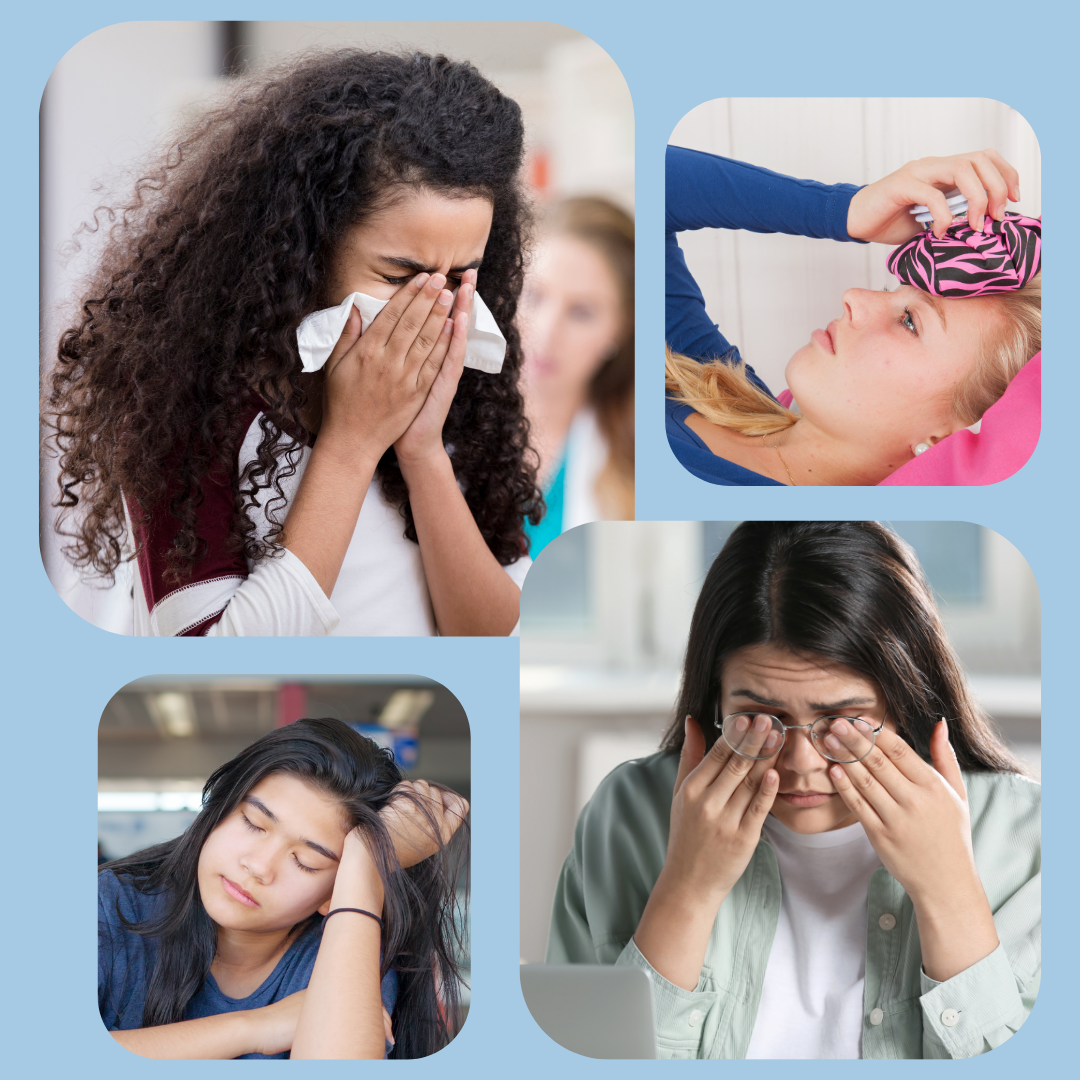Hay fever relief for your teen
Home remedies for hay fever

Updated December 2, 2025 • Medically reviewed by Dr. Emma Dickie
Medically reviewed by Dr. Emma DickieIn this article
Quick summary
- Hay fever is a common allergy to pollen and many teens experience symptoms that can disrupt their day
- There are easy home remedies for hay fever that can reduce discomfort, including natural approaches and prevention tips
- If nothing’s helping, speak to a pharmacist about hay fever relief or allergy medication

Hay fever and teens: what you need to know
Hay fever (also known as allergic rhinitis) is a common reaction to pollen.
Pollen is a fine dust released by plants, especially between March and September.
For teens, it can feel like having a never-ending cold, and it can make school, sleep and social plans harder than they need to be.
The good news? There are plenty of hay fever remedies you can try at home to ease their symptoms and help them feel more comfortable.
Signs of hay fever in teens
Many teens don’t realise they have hay fever at first, especially if their symptoms seem like a mild cold.
Common signs of hay fever include:
- Sneezing or coughing
- A runny or blocked nose
- Itchy, red, or watery eyes
- Itchy throat, mouth, ears, or nose
- Headaches or pressure in the face
- Feeling more tired than usual
- Worse asthma symptoms (if they already have asthma)

Home remedies for hay fever that might help
Looking for a natural remedy for hay fever before reaching for the medicine cabinet?
Here are some natural options worth trying:
- Dab petroleum jelly around the nostrils to trap pollen
- Encourage them to wear sunglasses outdoors to reduce eye irritation
- Ask them to shower and change clothes after being outside
- Keep windows and doors shut, especially in early morning or evening
- Avoid drying clothes outside (pollen can cling to fabric)
- Vacuum and dust with a damp cloth to reduce indoor pollen
- Avoid fresh flowers, walking on grass, or sitting near open windows
These simple home remedies for hay fever can sometimes make a big difference, especially during peak pollen days.
When home remedies for hay fever aren't enough: next steps
If your teen’s symptoms aren’t improving – or are affecting their everyday life – a pharmacist can help recommend hay fever relief options.
Many suggest antihistamines: allergy medicines that come as tablets, nasal sprays or eye drops.
They’re often inexpensive, and some are suitable for daily use through hay fever season.
If symptoms persist or seem severe, it’s best to check in with your family doctor for a tailored treatment plan.
Hay fever isn’t easy...
We know how tricky hay fever season can be – especially if your teen is also dealing with exams, outdoor activities e.g. sports day or summer camp or just general life stresses.
Trying a few natural remedies for hay fever at home can often be the first step towards comfort.
The luna app also includes friendly, expert-backed content for teens on managing seasonal health, stress, and everyday symptoms.

How we created this article:
luna's team of experts comprises GPs, Dermatologists, Safeguarding Leads and Junior Doctors as well as Medical Students with specialised interests in paediatric care, mental health and gynaecology. All articles are created by experts, and reviewed by a member of luna's senior review team.
Sources:
NHS "Hay fever" | Accessed 17.06.25
https://www.nhs.uk/conditions/hay-fever/We'd love to keep in touch!
Sign up to our parent newsletter for emails on the latest teen trends, insights into our luna community and to keep up to date
By signing up, you are agreeing that we can use your email address to market to you. You can unsubscribe from marketing emails at any time by using the link in our emails. For more information, please review our privacy statement.